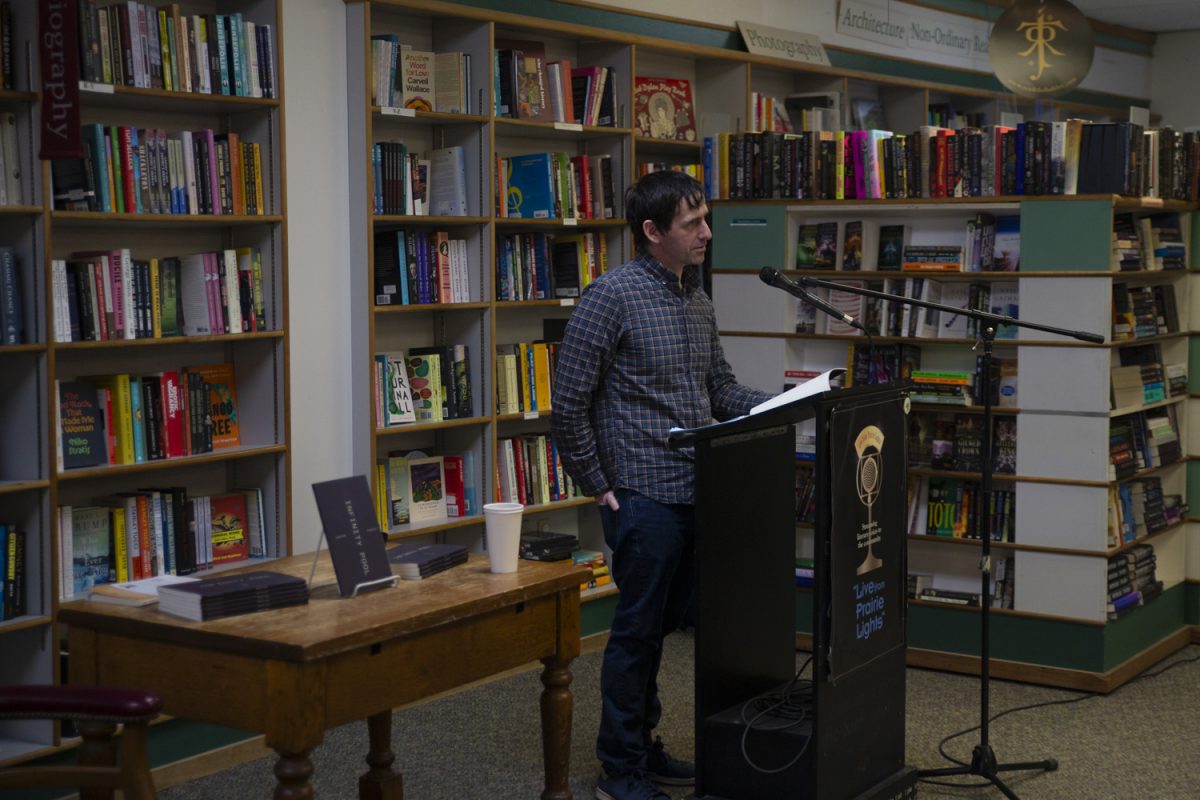Jonathan Thirkield graduated from the Iowa Writers’ Workshop with an MFA in Poetry. He has taught computational design and media focusing on visualization, code, data, and digital storytelling at Columbia University’s Graduate School of Journalism, Parsons School of Art, Media, and Technology, and the New School’s Graduate Media Studies program.
His recent writing has appeared in Conjunctions, The New Yorker, and the Paris Review. Thirkield’s work explores the intersections between poetry and code, found in his new poem book release, “Infinity Pool.”
This interview has been edited for length and clarity.
The Daily Iowan: What about the rise of technology worries you?
Thirkield: So much of it, and that’s actually why I teach it. What I find most scary about the rise of technology and AI is how it’s impacting how we see and understand the world. It’s changed how we read, imagine, and engage with the world. Especially with AI, it’s taking away our ability to know things in deep, intimate ways, either through reading, discovery, research, or just interacting with each other as human beings on a basic level.
In the “Infinity Pool” blurb, what do you mean by “multiverse conceit”?
Our culture, especially with the internet, has created this idea that there are multiple realities that we can enter, and on a certain level, that is true. The internet creates this sort of metaphysical space that we can enter and join communities to feel like we are building our own realities. Poetry and fiction have been building worlds forever. My book is called “Infinity Pools” because there is this idea of the infinite realm of the internet when we’re these very finite beings. The actual universe we’re living in is the human world. I’m interested in the desire for the reality that isn’t there.
What is your favorite poem in “Infinity Pool,” and why?
That’s a tough one. There’s a poem called “To A Kid Launched One Year After the iPhone,” which is about my son and has quotes directly from him when he was four. The final poem in the book is “Super Fragile Catalyst,” which begins about my daughter but then turns into a meditation on the Uncanny Valley and many complex technological and human things. I’ll give a tie between those two.
What is some of the formatting of the poems’ significance?
I very intentionally range the line lengths quite a lot. I have a handful of poems that have extremely long lines. Those opening poems are short and are lyrics about AI and the metaphor of AI. It’s not artificial or intelligence, and it’s built on this idea that the computer can be like a mind, and a mind can be like a computer. Those poems have short lines because I am leaping from one potential metaphor to another. It mimics the short bits of logic that go into how we think about code. I also have another poem later in the book that tries to imitate the logic of a data stream. Part of the infinity thing is the contraction and dilation I play with throughout the book. I also like the short ones because they are more musical and jump quickly.
RELATED: Ask the Author | UI Alum Steven Duong on Iowa Writers’ Workshop, new poetry collection
When did your fascination with technology begin?
In the early part of my career, when I was trying to be a poet, I worked as a coder and a website developer. At the time, I kept those two very separate. This book started with me thinking about how we become so saturated in the internet and technology. I wanted to explore that from my poetry and use my work as a way of thinking about not just critiquing technology, but what the appeal of it was and how they were transforming us. Poetry had been a way for me to really ground how I approached technology and what it meant to be human. My early works were just me exploring these imaginary spaces.



